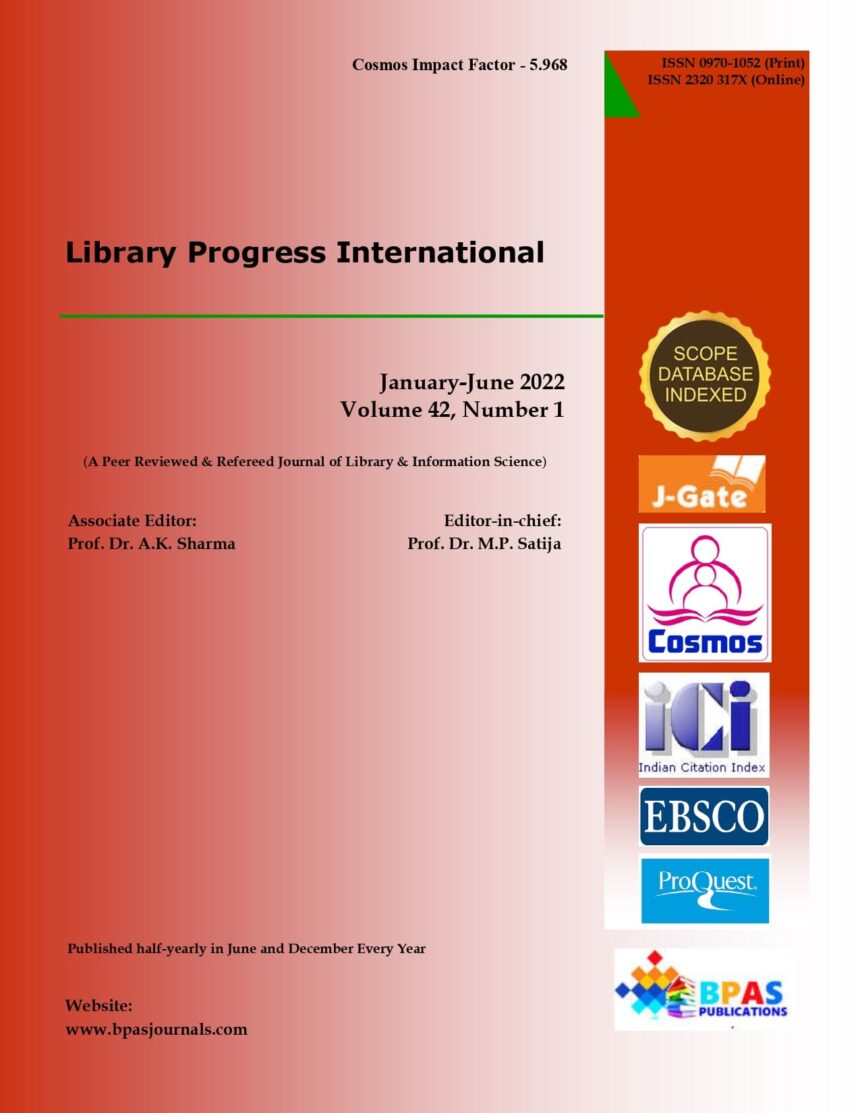Online and Offline Mode of Learning in India before and after Covid-19 – A Study
DOI:
https://doi.org/10.48165/Keywords:
Covid-19, Pandemic, On-Line, Off-Line, Education, LearnerAbstract
Covid-19 have put a great impact not only on the national and international economies but also greatly affected the education sector of the world particularly underdeveloped and developing countries. It is producing a negative impact on students mentally, professionally and academically. Before Covid-19 very few people in India were using virtual learning platforms for various projects, trainings, and delivery of other add on courses. But because of the present COVID situation across the world it has become inevitable demand of our society that we should use online mode of learning to fulfill our educational requirements. In this paper a comparative study is done on online versus offline mode of learning in India using different platforms. This study is done to understand the people perception on the most effective way of propagating knowledge to younger generations in India and presenting a clear picture to the world ,that which mode, online or offline is more effective and more relevant, during these hard time. The online teaching is very fruitful for a distant learner, but at the same time classroom mode of teaching is beneficial for an average child. Strength of online classes is temporal and spatial flexibility. A learner can access the lecture at anytime and anywhere provided digital technology gadgets such as a laptop, a desktop or a smart mobile phone with internet facilities is available to them. This digitally driven learning also comes with certain health related issues such as eye irritation, anxiety, dullness, headache, sleep disorders, mood swings, restlessness, obesity and many more but Online propagation of education has become a virtue out of necessity in this pandemic even in India. But sometimes poor band width and unstable internet connectivity creates problems, as more than 85% people experienced that this is a major problem during the classes, meetings or attending seminars and webinars.
Downloads
References
Wolinsky, F.D., Vanger, Weg MW, Howren, M.B, Jones, M.P., Dotson, M.M.,(2013), A Randomized Controlled Training Using a Visual Speed of Processing intervention in Middle Aged and Older Adults. Plos One, 8(5).
Kuedier, A.M, Parisi, J.M, Gross, A.L, Rebok, G.W.(2012), Computerized Congnitive Training with Older Adults, A systematic Review,Plos One,7(7).
Kerfield, C.A, Gross, L., (2010), Open Education, Open Minds, Plos Biol, 8(10).
Villalustre Martinez, L., Del Moral Perez, M.E, (2011), e-activities in ruralnet’s virtural context, satisfaction of the students with different learning styles,
Education XXI, 16(1), 145-160.
Singh, S., Rylander, D.H. & Mims, T.C (2012), Efficiency of Online vs. Offline Learning: A Comparison of Inputs and Outcomes, International Journal of Business, Humanities and Technology. 2(1), 93-97.
Paul, J. & Jefferson, F. (2020), A comparative Analysis of Student Performance in an Online vs. Face to Face Environmental Science Course from 2009- 2016, Frontiers, https://www.frontiers, 1-16.
Seale, J., Chapman, J. & Davey, C. (2000), the influence of assessments on students, motivation to learn in a therapy degree course. Medical Education, 34(8), 614-621.
Peat, M. & Franklin, S. (2002). Use of Online and Offline Formative and Summative Assessment Opportunities: have they had any Impact on Student Learning?
Rai, L., Sun, N., Cao, M. & Lie, F. (2016). Comparison of Online and Offline Impact on Mooc Learning. Conference ISERO International Conference on Arts, Education and Social Sciences, 14 (7).1-8.
Vicente Lopez Sobechero, M., Gonzalez Gaya, C. & Harnadez Ramirez, J. (2014). A Comparative Study of Classroom and Online Distance Modes of Official Vocational Education and Training, PLOS ONE, 9(5), 1-16.
Hewson, C. & Charlton, J. (2002), Comparing online and offline administration of multiple choice question assessments to psychology undergraduates: do assessment modality or computer attitudes influence performance, Psychology Learning and teaching, 6(1), 37-46.
Roy, G.G. & Armarego, J. (2003), The development of online tests based on multiple choice based questions, Web powered databases, 121-143.

